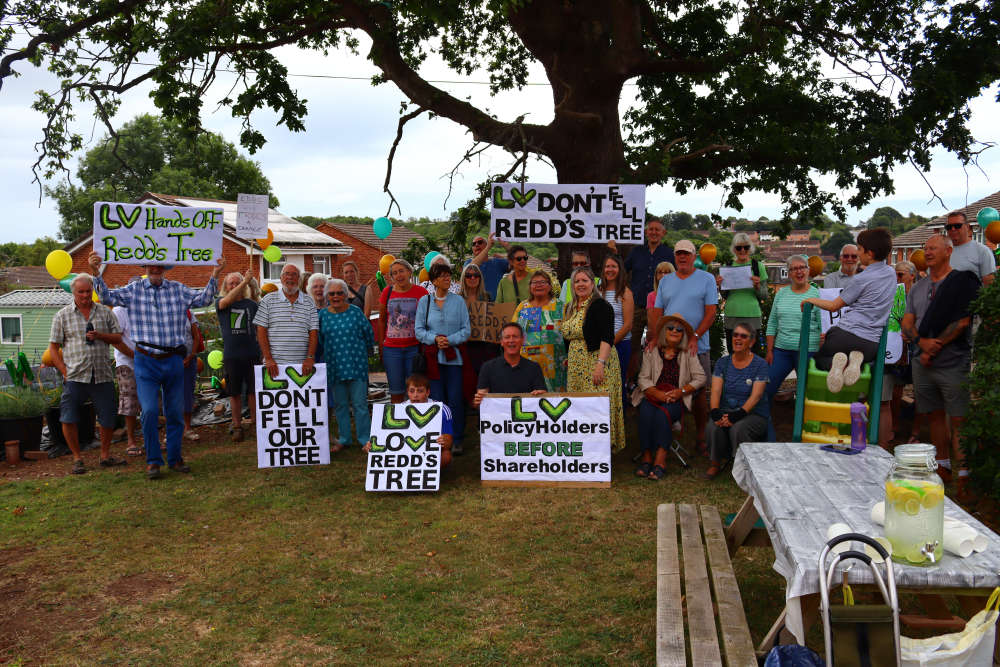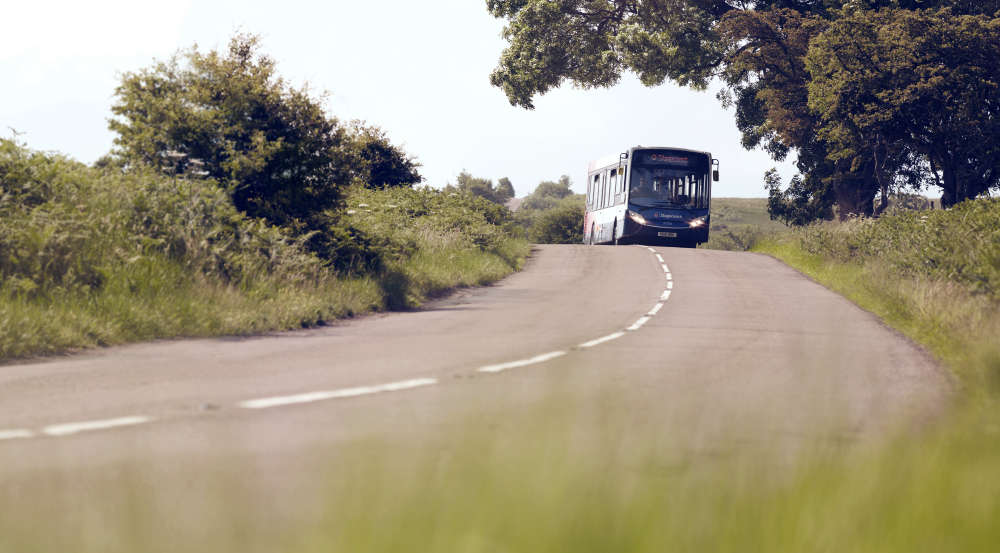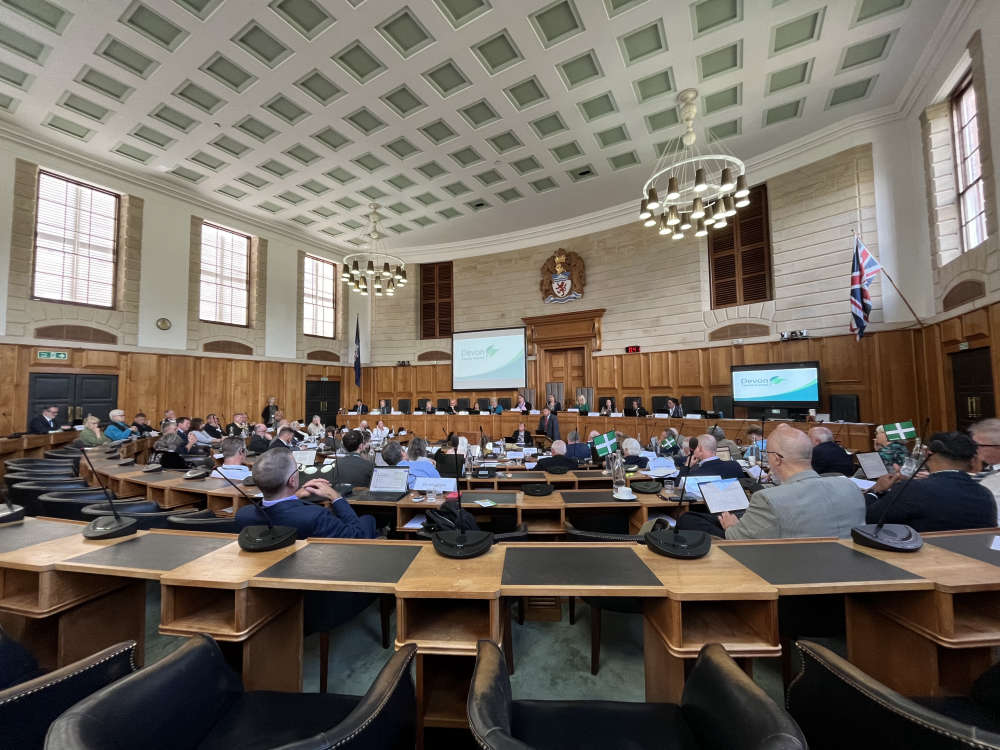
Exmouth MP David Reed has called upon the deputy PM
An urgent review of a nationwide rule that can see protected trees felled at the behest of insurance companies has been demanded by a Devon MP.
David Reed, the Conservative member for Exmouth and Exeter East, has written to the deputy prime minister, Angela Rayner, urging her to reconsider a historic rule change that virtually prevents local councils from objecting to certain applications to fell protected trees.
The change in 2012 removed an ability for local councils to indemnify themselves against claims for compensation by the insurance companies.
Subsequently, claims have usually arisen because the insurance company can state that by not being able to remove a tree, something it believes would rectify a problem such as subsidence, it is having to pursue a more expensive solution.
And without the protections for councils that were in place prior to 2012, that means insurance companies can pursue local councils for compensation they can ill afford.
Mr Reed, who has highlighted an issue in his constituency whereby an Exmouth family is fighting to prevent an oak tree on their property being felled, said the situation highlighted a “growing problem” with the regulations around planning and tree preservation.
“They hold local councils liable for costs if they reject tree work applications that insurers later claim caused financial loss,” he said in his letter to Ms Rayner.
“It is putting underfunded planning authorities in an impossible position and allowing insurers to pressure councils into approving applications without sufficient evidence, simply to avoid potential compensation claims.”
Mr Reed noted that his constituents, Linda and Scott Taylor Cantrill, were trying to retain an oak tree they believe to be around 200 years old.
Not only do they want it to remain because it has a tree preservation order on it, but it also provides vital shade that enables their 11-year-old son, Redd, who has epilepsy and is registered deaf blind, to play outside.
The family has already had to remove all the trees in their back garden because of their insurance company’s insistence it would alleviate subsidence issues at their home, meaning the oak in their front lawn is the last remaining tree on their property.
“The insurer submitted the application without the family’s knowledge, claiming the tree is causing subsidence-despite offering no clear evidence and failing to investigate the issue properly for nearly three years,” Mr Reed said.
“The tree is subject to a Tree Preservation Order and is the last remaining source of shade in the garden after the family removed 17 other trees and plants at the insurer’s request.
“Over 90 objections have now been lodged, and a local petition launched just this morning has already gained hundreds of signatures.”
Mr Reed’s letter urged Ms Rayner to “urgently review this section of the regulations” and asked for a formal response.
The MP has also written to the insurance company asking it to withdraw the planning application and “commission a full, independent review of how this case has been handled”.
“This family has done everything asked of them,” he said in his letter to LV=.
“They have tried to work in good faith to protect their home, their family, and the natural heritage of their property. They now deserve the same from you.”
A spokesperson for Allianz, which owns LV= General Insurance with whom the Taylor Cantrills are covered by, said investigations revealed desiccated clay soils with “roots found originating from an oak tree”.
It said drains were inspected in 2023, and were found to have root damage and subsequently repaired. It believes the oak tree is the cause of the subsidence and the “best long-term option” to resolving the subsidence issue is removing the tree.
“Trees, while essential for the environment, can exacerbate subsidence due to their roots drawing moisture from the soil, especially during dry periods. In areas prone to subsidence, tree removal may be necessary to mitigate these risks and protect buildings from potential damage,” a spokesperson for Allianz said.
“Our buildings experts have surveyed the property and confirm that an oak tree is causing the damage to the policyholder’s home. Although removing the tree is considered the best option, we understand the policyholder’s concerns about removing it.
“Our experts are considering alternative options to resolve the problem without removing the tree but some of this is dependent upon the level of movement over the summer.”
 Cornwall ‘shafted’ by D&C Police, says leading councillor
Cornwall ‘shafted’ by D&C Police, says leading councillor
 Torbay's bigger buses outgrow streets
Torbay's bigger buses outgrow streets
 Anger at plans for 700 homes in Exmouth
Anger at plans for 700 homes in Exmouth
 Totnes snubbed as banking hub
Totnes snubbed as banking hub
 Attempted murder charge after Plymouth assault
Attempted murder charge after Plymouth assault
 Push for fair education funding heads to Westminster
Push for fair education funding heads to Westminster
